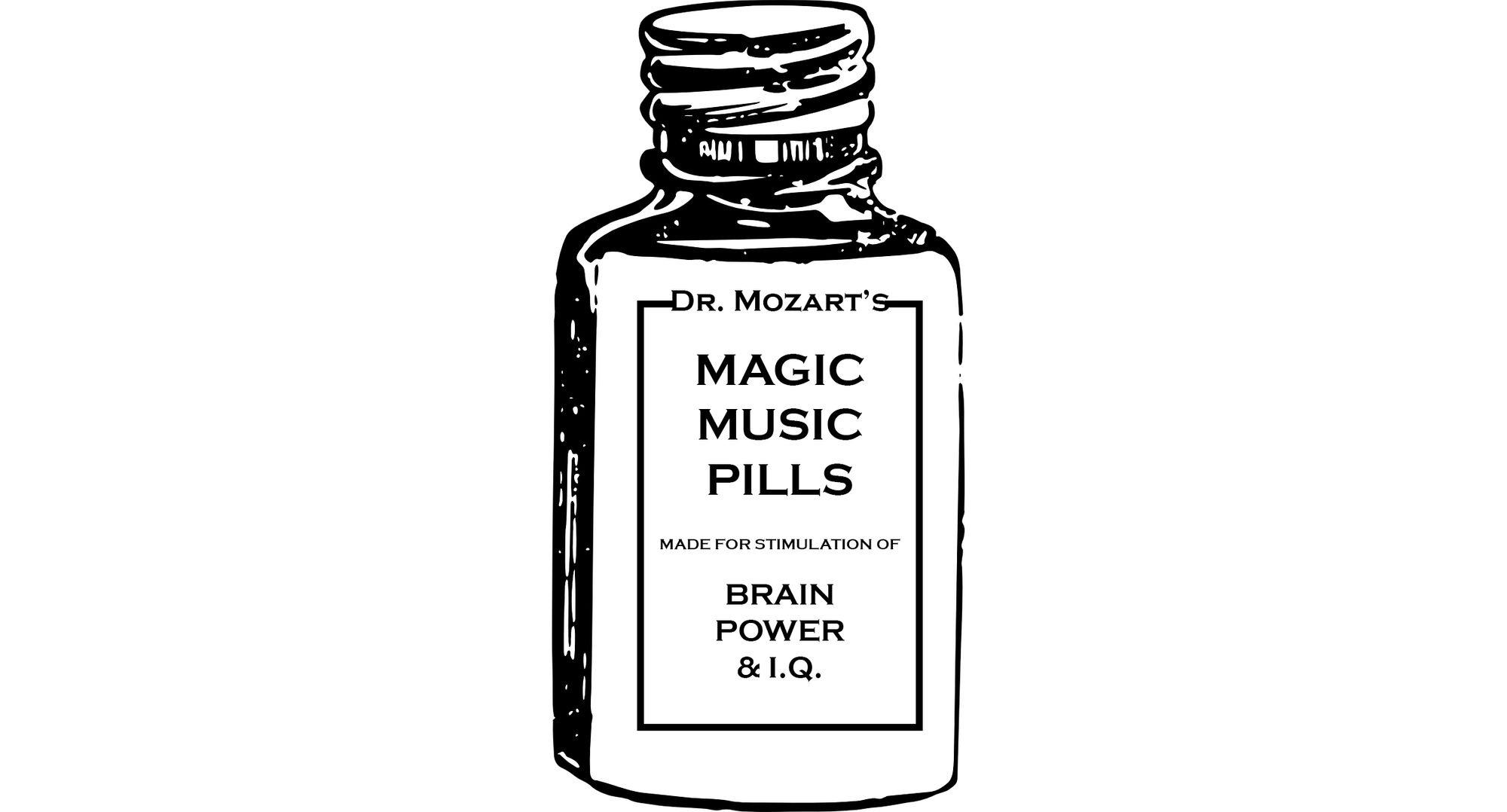Music for learning has developed over time from a choice into a whole style, as anybody who’s lately perused Spotify’s playlist assortment can attest. From lo-fi examine beats YouTube channels to collections of Mozart for babies-to-be, there are many individuals that can let you know that music, particularly classical music, stimulates mind exercise and studying.
However does music assist you to examine―for actual?
In case you had been going purely off public opinion and collective knowledge, you may imagine that every concerto you hearken to bumps your IQ up by 5. Sadly, these music-based psychological positive factors might not solely be nonexistent however in sure circumstances, your examine music could also be actively working AGAINST you.
All of the confirmed examine advantages that you just’re gaining from utilizing Brainscape’s adaptive flashcards, for instance, is perhaps unintentionally canceled out by Carly Rae Jepsen. It’s not her fault. She didn’t know.
This isn’t coming from a spot of opinion, both, however truth. Whereas constructing Brainscape, our perfect geeks combed by means of many years of educational journals and analysis to construct probably the most scientifically optimized examine app attainable.
As a nice facet impact of all that analysis, we’re additionally certified to cowl the collection of occasions that led pregnant ladies to strap headphones to their child bump seeking a prenatal IQ enhance.
We have gathered all our analysis on this article to reply the most-asked questions on music and examine:
- Does classical music enhance psychological efficiency?
- Does listening to music whereas learning have unfavorable results?
- How can Brainscape assist you to examine extra successfully (than with music, anyway!)?
- Ought to I simply examine in silence? As a result of that sucks.
- What about utilizing music to work, or brainstorm?
- So do I hit play or pause come examine time?
1. Does classical music enhance psychological efficiency?
The assumption that classical music boosts psychological efficiency appears to originate from a 1993 examine in Nature titled “Music and Spatial Job Efficiency.” Earlier than we even end studying the title, we begin to see a few of the flaws within the principle.
The examine in query was primarily based on duties particularly associated to spatial reasoning—the capability to know, motive, and bear in mind the spatial relations amongst objects or area. This may increasingly come in useful for beating your Tetris excessive rating or rearranging your lounge in a method that might make Mary Kondo proud. However leaping over a knowledge-heavy hurdle such because the bar examination? Not a lot.
This examine on music and spatial reasoning was picked up by the New York Occasions, which reported on it, shedding a little bit of specificity within the course of. Then, by means of a sport of damaged phone, we ended up with the closely simplified conviction that “classical music makes you smarter.”
From spatial reasoning to IQ. That’s a little bit of a leap, isn’t it? Sadly, college students and fogeys all over the place have been repeating it ever since.
2. Does listening to music whereas learning have unfavorable results?

Sorry to Wolfgang, but it surely simply may. Based on a 2010 examine from the College of Wales in Cardiff, listening to music whereas trying to memorize info may very well hinder your efforts.
The examine discovered that topics who listened to music—extra particularly, what they known as “changing-state situations”—whereas trying to memorize a listing weren’t capable of recall as a lot as those that studied in full silence, or whereas uncovered to a single phrase repeated monotonously. That’s excellent news for those who like learning with a creepy mantra within the background!
Let’s have a look at a press release from the lead researcher Nick Perham:
The authors speculated that “music might impair cognitive skills in these eventualities as a result of for those who’re attempting to memorize issues so as, chances are you'll get thrown off by the altering phrases and notes in your chosen track.”
In layman’s phrases, when learning your biology notes, you may not bear in mind the components of the limbic system fairly as nicely in case your mind is (unconsciously) attempting to maintain up with Eminem’s “Rap God” on the similar time.
This could possibly be a catastrophe for college students attempting to organize for vital exams.
3. How can Brainscape assist you to examine extra successfully (than with music, anyway!)?
One other factor that will assist you to focus in your research? Utilizing the Brainscape app. One of many causes college students like learning with music within the background is as a result of they discover learning to be, nicely, boring. The music makes the expertise extra pleasurable; though, as we’ve seen, it doesn’t do you any cognitive favors.
Brainscape’s adaptive flashcard system is constructed from the bottom up round strategies like spaced repetition and energetic recall to make learning simpler and simpler. Furthermore, the knowledge is delivered in tremendous manageable bite-sizes with a cornucopia of options designed to grip your consideration and hold you engaged whereas getting ready to your examination.
So, whereas there’s no magical tablet or a single tip that’ll make you be taught higher, Brainscape can swing the needle in the fitting path.
Nonetheless can’t think about learning with out music that will help you focus? We’d suggest trying out our full information to focusing higher to seek out one thing that works for you, with out handicapping how a lot you bear in mind.
4. Ought to I simply examine in silence? As a result of that sucks.

Not essentially! There are some choices if complete quiet is a bit of too eerie for you. Since changing-state situations (like music) impair recall, we will assume that quiet, repetitive music isn't as dangerous to recall as extra complicated music. In case you MUST hearken to music whereas learning, quiet, repetitive instrumental music appears to be the most secure possibility (you win this spherical, lo-fi woman.)
One different secure possibility for some auditory stimulation that received’t derail your examine session is one thing we’ve truly lined right here at Brainscape earlier than: binaural beats. Greater than being a fairly first rate mixtape title, binaural beats are an intersection of music and science developed to stimulate your mind.
By listening to those beats whereas sporting stereo headphones, two separate frequencies are broadcast into every ear and mixed by your mind. Allegedly, this will encourage elevated studying, focus, reminiscence, and extra (though the jury continues to be out on whether or not they truly work).
5. What about utilizing music to work or brainstorm?
We’ve been discussing the results that music has on learning and memorization. However that’s to not say music can’t positively have an effect on your work and thoughts in different methods, and for different kinds of duties. In actual fact, there’s proof that music can enhance the standard and amount of your efficiency in these different duties.
A examine from the College of Windsor discovered that when it got here to software program growth, builders produced each a larger amount and better high quality of labor after they had background music.
What for those who’re working in a artistic area, attempting to provide you with a brand new world-changing concept, or possibly the proper joke to your weblog submit? Nicely, music may also help there as nicely. In 2012, a examine from the Journal of Shopper Analysis found that not solely music however even simply reasonably loud ambient noise, improved topics’ summary considering, boosting their creativity and effectiveness.
Attempting to be taught a brand new language? It seems that for those who’re a musician, chances are you'll have already got a leg up on the competitors.
Scientists at Northwestern College discovered that “musicians are higher than non-musicians in studying to include sound patterns for a brand new language into phrases.” Blasting music whereas studying the language continues to be not an ideal concept, however this examine simply makes it clear that music has a definite impact on our brains.
[Speaking of languages, Brainscape has a toolkit and guide for the best way to learn a language on your own.]
Total, it will seem that music can enhance our artistic prowess. However the identical doesn’t apply for sitting right down to grasp a knowledge-heavy topic. That’s when Brainscape can actually come in useful.
6. So does music assist you to examine?

From the accessible analysis, the reply to that query relies upon each on what you’re listening to and how much work you’re doing. In case you’re learning with the intent to recollect what you learn, it's best to follow silence, mild seems like binaural beats and white noise, or easy, repetitive, lyric-free music to make sure you’re getting most worth from the time invested.
[Looking for a boost in motivation? Check out our guide on how to find the motivation to study when you'd rather procrastinate]
One ultimate thought is that this: use music as a reward slightly than a examine support.
After half-hour of learning, enable your self a pair listens to your favourite music. It'd even sound higher than standard, figuring out that you just simply knocked out some extraordinarily environment friendly learning. Name it a victory track.
Nevertheless, if the work you’re doing doesn’t demand deep memorization or recall, music might certainly supply some advantages to each your effectivity and creativity.
Need to be taught much more concerning the connections between music and the mind? Try the podcast Music and the Mind over on the Library of Congress.
For extra tricks to optimize your examine time, try our full information on methods to examine extra successfully with much less complete effort.
